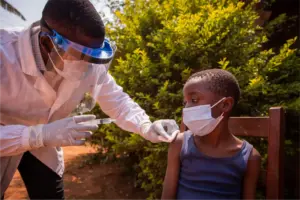
Methanol scare in Brazil: A growing methanol poisoning scare has upended nightlife in São Paulo, with bars near Avenida Paulista reporting a sharp drop in cocktail orders and a shift to beer and wine. At one bar that typically sells about 80 caipirinhas a night, none were served last week, the manager said, as staff warned patrons to avoid mixed drinks.
Brazil’s Health Ministry on Friday confirmed 11 methanol poisoning cases linked to alcoholic beverages and said 116 more were under investigation. One death in São Paulo was confirmed by laboratory testing, with 11 additional deaths under review. Most suspected cases have been reported in São Paulo state, the epicentre of the outbreak. Local media have reported severe cases, including patients with vision loss. Rapper Hungria, hospitalised in Brasília after a suspected exposure, said he was recovering and expected to be discharged soon.
Also Read | Alcohol-related liver deaths nearly double in US over 20 years
Health Minister Alexandre Padilha urged the public to avoid drinking distilled spirits, especially clear products, unless their origin is certain, noting Brazil recorded 20 methanol poisonings in August and September, roughly its typical annual total. The warnings triggered widespread anxiety, prompting some venues to suspend sales of distilled beverages and replace cocktail menus with fermented options or alcohol-free mixes.
Police have launched inspections of bars and distributors suspected of selling contaminated alcohol. São Paulo police chief Artur Dian said authorities have identified counterfeit spirits tainted with methanol but have yet to determine whether contamination was intentional or accidental. Counterfeiters often dilute products to increase volume and profit, he said, and bottles may also have been contaminated. The Brazilian Association of Distilled Beverages cited Euromonitor data estimating adulterated alcohol accounts for 28% of the national market and sells at prices about 35% below legitimate brands.
Methanol, used in fuel, antifreeze and solvents, is toxic; ingestion can cause headache, nausea, blurred vision, seizures and coma. Officials and clinicians advise immediate medical attention if poisoning is suspected.








